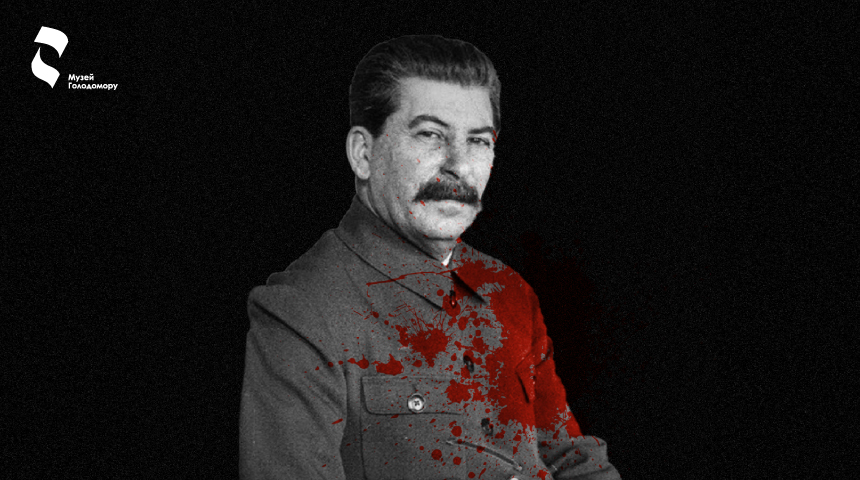Poll: 61 per cent of Ukrainians have a negative attitude toward Stalin
Most Ukrainians – 61% – have a negative attitude towards Stalin. The Kyiv International Institute of Sociology (KIIS) obtained such results from an all-Ukrainian public opinion poll.
It is noteworthy that last year there were 64% of them. The decrease, as noted in KIIS, was due to an increase from 23% to 26% of those who have an indifferent attitude. At the same time, among Ukrainians, there are still people who have a positive attitude towards Stalin – such as 4% of the respondents.
KIIS regularly asks questions about the attitude towards Stalin in the form of “How do you personally feel about Stalin in general?”. The respondent could choose one of the answers: “with admiration”, “with respect”, “with sympathy”, “indifference”, “with dislike, irritation”, “with fear”, “with disgust, hatred”. The first three options actually correspond to a positive attitude towards Stalin, and the last three to a negative one.
Even before the Revolution of Dignity, a minority of the population (23%) had a positive attitude towards Stalin. Although, at the same time, the negative attitude still did not dominate (37%). Until 2021, the situation did not change significantly, although the general trend was rather towards a decrease in the share of those who have a positive attitude towards Stalin, KIIS emphasizes.
After the full-scale invasion, the public opinion of the population crystallized – in the summer of 2022, 64% of respondents had a negative attitude towards Stalin, and the share of those who had a positive attitude was 5%. As of 2023, 61% of respondents have a negative attitude towards Stalin (some decrease due to an increase from 23% to 26% of those who have an indifferent attitude), and only 4% are positive.
KIIS compares the dynamics of attitudes towards Stalin among the population of Ukraine and Russia (according to data from the Levada Center) over the past 10 years.
If in 2012, approximately the same proportion of the population in Ukraine and Russia had a positive attitude towards Stalin, then in Ukraine, in general, there were fewer sympathizers of the Soviet dictator, while in Russia, on the contrary, affection for him grew rapidly, and now the majority of the population has a positive attitude. In Russia, between 2012 and 2023, the share of those who perceived Stalin positively increased from 28% to 63%.
It is noteworthy that in Ukraine, both young people and older people have a distinctly critical attitude towards Stalin. In Russia, even among young people aged 18-24, 48% have a positive attitude towards Stalin (and only 8% have a negative attitude). Among the older population of Russia, the attitude towards Stalin is even better.
Commenting on the results of the study, Anton Hrushetskyi, executive director of KMIS, emphasizes: “The attitude towards Stalin is a bright value marker that demonstrates the difference (chasm) between Ukrainians and Russians. In fact, even when 10 years ago the attitude towards Stalin was not favorable, he was unequivocally condemned in Ukrainian society. For example, in one of the surveys before the Revolution of Dignity (which covered both Crimea and the entire Donbas), more than 80% of respondents believed that the Stalinist repressions of the 1930s could not be justified. Only about 5% were ready to justify them with “the need for industrialization and overcoming backwardness”. That is, the thesis about the “effective manager” in Ukraine did not work and did not displace all the crimes of the Soviet dictator in the public consciousness.
At the same time, this thesis worked successfully (and still works) in Russia, where the positive attitude towards Stalin grew by leaps and bounds. Ukrainian society reacted like a normal healthy society to more and more information about Stalin’s crimes (perhaps a little slower than we would like, but still the dynamics were positive). Instead, Russian society turned out to be morally degraded, incapable of healthy reflection and incapable of a critical view under the pressure of propaganda that formed a positive image of the dictator.
After almost a year and a half of a large-scale invasion, the obvious war crimes committed by the Russians in Ukraine should become an incentive for the Russians to rethink various aspects of public life in a humanistic spirit. Instead, we see the persistence of positive attitudes toward one of the most terrifying and brutal tyrants in human history, even among young Russians. It is not surprising then that the majority of Russians approve of the war against Ukraine and Ukrainians.”
The survey was conducted from May 26 to June 5, 2023. Using computer-assisted telephone interviews (CATI) based on a random sample of mobile phone numbers (with random generation of phone numbers and subsequent statistical weighting), 984 respondents were interviewed living in all regions of Ukraine (except Crimea AR).
The survey was conducted among adults (aged 18 and older) citizens of Ukraine who, at the time of the survey, lived on the territory of Ukraine (within the boundaries controlled by the authorities of Ukraine until February 24, 2022). The sample did not include residents of territories that were not temporarily controlled by the Ukrainian authorities until February 24, 2022 (AR Crimea, the city of Sevastopol, certain areas of the Donetsk and Luhansk regions), and the survey was not conducted with citizens who left the country after February 24, 2022.
